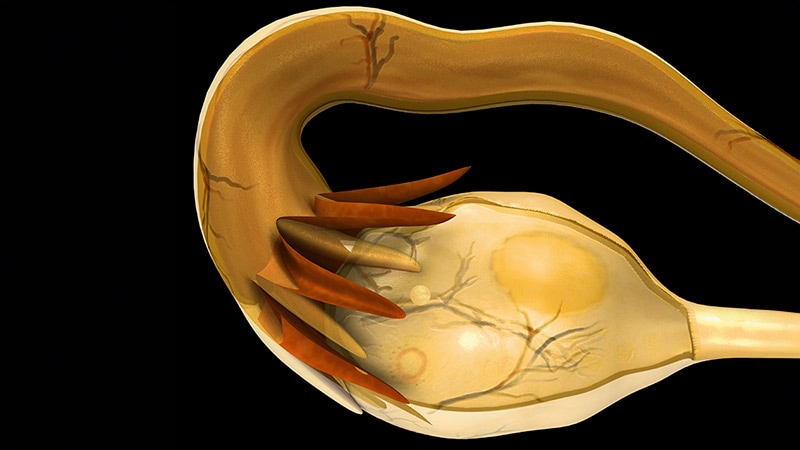Using Ovarian Tissue Transplantation to Delay Menopause: Benefits, Risks, and Ethical Considerations
Concepts de base
Ovarian tissue transplantation can potentially delay menopause, offering medical benefits but raising ethical concerns.
Résumé
The transplantation of ovarian tissue is explored for its potential to delay menopause, with benefits and risks discussed by experts.
Benefits of OTT:
Reducing health risks associated with menopause.
Potential to delay menopause by up to 47 years.
Interactive tools to estimate menopausal delay.
Risks and Ethical Concerns:
Ethical considerations of removing healthy tissue.
Risks of early menopause if tissue is not transplanted.
Uncertainty about the benefits compared to traditional treatments.
Expert Opinions:
Dr. Oktay advocates for the medical benefits of delaying menopause.
Dr. Faubion questions the health benefits and necessity of the procedure.
Dr. Amato raises concerns about the risks and benefits compared to other treatments.
Research and Funding:
Study funded by various organizations with no reported disclosures.
Using Ovarian Tissue Transplantation to Delay Menopause
Stats
"To date, he said he has performed the procedure on approximately 20 patients."
"The model forecasts a delay in menopause of up to 47 years."
"OTT is currently associated with a survival rate of 40% for follicles."
"A 25-year-old woman with an average ovarian reserve who preserved a quarter of one ovary would have a delay in menopause of 11.8 years if 40% of the follicles survived."
Citations
"You're taking a perfectly healthy 25- to 30-year-old woman and putting her through surgery to take out a healthy organ. Let's just think about that." - Stephanie Faubion, MD
"Just because we can do this, should we? And will it do the things that we think it will? Does preventing or delaying menopause delay the aging process?" - Stephanie Faubion, MD
Idées clés tirées de
by Brittany à www.medscape.com 03-18-2024
https://www.medscape.com/viewarticle/using-ovarian-tissue-transplantation-delay-menopause-2024a1000507
Questions plus approfondies
How might delaying menopause through OTT impact women's overall health and quality of life?
Delaying menopause through Ovarian Tissue Transplantation (OTT) could have significant implications for women's overall health and quality of life. By potentially extending the reproductive lifespan and delaying the onset of menopause, women may experience reduced risks associated with menopause, such as osteoporosis, cardiovascular disease, and certain cancers. This could lead to improved physical health and well-being, as well as a higher quality of life by alleviating menopausal symptoms like anxiety and depression. Additionally, delaying menopause could offer preventive care for conditions linked to menopause, such as osteoporosis and dementia, ultimately enhancing the overall health outcomes for women.
What are the potential risks and benefits of OTT compared to traditional hormone replacement therapy?
Ovarian Tissue Transplantation (OTT) presents both risks and benefits compared to traditional hormone replacement therapy. The potential benefits of OTT include the restoration of ovarian function, hormonal balance, and the delay of menopause, which could lead to improved health outcomes and quality of life for women. OTT has shown promise in reversing early menopause and enabling fertility preservation. However, the procedure also comes with risks, such as the possibility of early menopause if ovarian tissue is removed without transplantation. On the other hand, traditional hormone replacement therapy may offer similar benefits in managing menopausal symptoms and preventing certain health conditions, but without the surgical risks associated with OTT. Additionally, the long-term effects and risks of receiving hormone therapy through OTT are still unknown, raising concerns about its safety and efficacy compared to traditional hormone replacement therapy.
How can advancements in OTT technology address ethical concerns and improve patient outcomes?
Advancements in Ovarian Tissue Transplantation (OTT) technology have the potential to address ethical concerns and improve patient outcomes in several ways. Technological advancements, such as revascularization drugs and robotic surgery, are likely to enhance the survival rate of follicles during the transplantation process, thereby reducing the risks associated with the procedure. By increasing the survival rate of follicles to 80%, advancements in OTT technology could improve patient outcomes by ensuring the success of the procedure and extending the delay of menopause. Furthermore, advancements in OTT technology can provide clinicians with better tools to inform patients about the potential benefits and risks of the procedure, enabling more informed decision-making. By enhancing the safety, efficacy, and success rates of OTT, technological advancements can help address ethical concerns related to the procedure and ultimately improve patient outcomes in fertility preservation and menopausal management.
0
